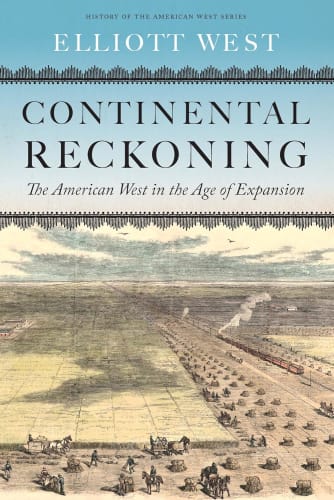
Continental Reckoning
The American West in the Age of Expansion
In Continental Reckoning renowned historian Elliott West presents a sweeping narrative of the American West and its vital role in the transformation of the nation. In the 1840s, by which time the United States had expanded to the Pacific, what would become the West was home to numerous vibrant Native cultures and vague claims by other nations. Thirty years later it was organized into states and territories and bound into the nation and world by an infrastructure of rails, telegraph wires, and roads and by a racial and ethnic order, with its Indigenous peoples largely dispossessed and confined to reservations. Unprecedented exploration uncovered the West's extraordinary resources, beginning with the discovery of gold in California within days of the United States acquiring the territory following the Mexican-American War. As those resources were developed, often by the most modern methods and through modern corporate enterprise, half of the contiguous United States was physically transformed. Continental Reckoning guides the reader through the rippling, multiplying changes wrought in the western half of the country, arguing that these changes should be given equal billing with the Civil War in this crucial transition of national life. As the West was acquired, integrated into the nation, and made over physically and culturally, the United States shifted onto a course of accelerated economic growth, a racial reordering and redefinition of citizenship, engagement with global revolutions of science and technology, and invigorated involvement with the larger world. The creation of the West and the emergence of modern America were intimately related. Neither can be understood without the other. With masterful prose and a critical eye, West presents a fresh approach to the dawn of the American West, one of the most pivotal periods of American history.
Continental Reckoning
The American West in the Age of Expansion
